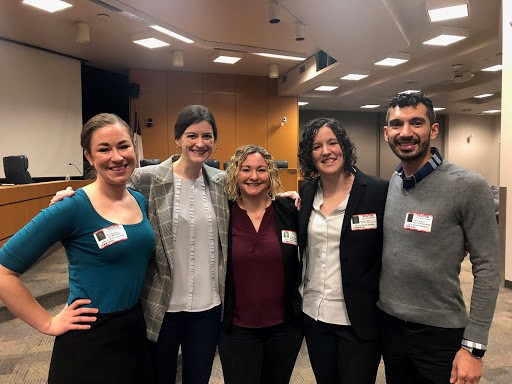
DFPS Hearing on the Family First Prevention Services Act
On Jan. 30, TexProtects joined advocates from around the state at the Department of Family and Protective Services’ (DFPS) public hearing on the Family First Prevention Services Act (FFPSA). In the 86th legislative session, TexProtects championed S.B. 355 which directed DFPS to develop a strategic plan for the implementation of FFPSA. DFPS published their Texas Child Welfare Changing Landscape Action Plan several months ago, and this hearing offered the public an opportunity to provide feedback toward their planning process and the opportunities presented by FFPSA.
As a refresher, FFPSA changes the way federal dollars can be spent:
- Title IV-E dollars previously could only be used for children once in substitute care, but now this funding is available for evidence-informed services for children and families to prevent removal. Specifically, these federal dollars intend to address the key drivers of child abuse and neglect: substance use, mental health, and lack of parenting skills. The idea behind this strategy is to provide the supports necessary to keep families safely together.
- For families who require legal intervention from CPS, funding will be designated for family-like settings and congregate care placements that provide higher quality services.
The provisions of FFPSA also aim to better support kinship caregivers and provide older youth in care with more supports as they transition into adulthood.
TexProtects provided testimony alongside our advocacy partners from Texas CASA, Texans Care for Children, Disability Rights Texas, National Association of Social Workers, Parents as Teachers, Nurse-Family Partnership (NFP), Nurturing Parenting, Center for Public Policy Priorities, and several community providers. In our testimony we emphasized the importance of getting the eligibility criteria right for these critical prevention services so that families have access to needed supports. We also discussed the importance of preserving funding for primary prevention efforts through Prevention and Early Intervention (PEI) initiatives such as Healthy Outcomes through Prevention and Early Support (HOPES) and NFP at DFPS and using the infrastructure already in place to expand services to higher risk families. Finally, we noted the importance of supporting kinship families and exploring the provisions of FFPSA that would allow further support of older youth in care.
We were glad to see such a great turnout at the hearing and the amount of meaningful, intentional recommendations provided for DFPS to consider. Texas’ deadline to implement the provisions of FFPSA by October 2021 is just around the corner, and we hope to see DFPS incorporate this feedback as they carry out their work.



